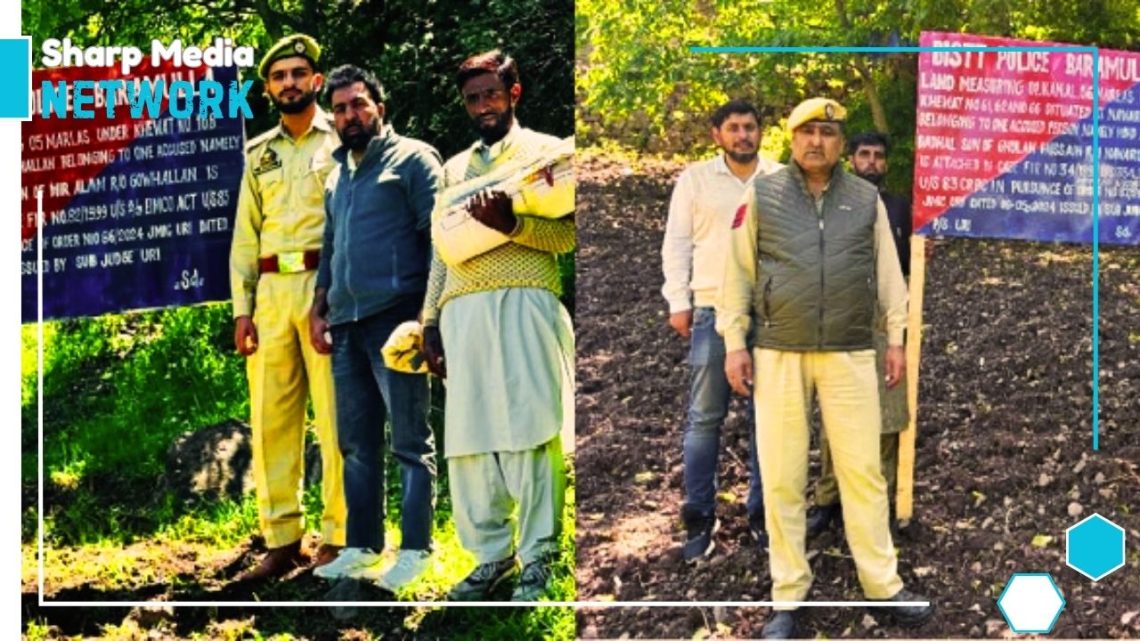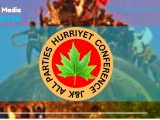
BJP’s Systematic Campaign of Dispossession: IIOJK’s Struggle Against Property Seizures and Political Repression
December 7, 2024Through property seizures and political repression, the BJP is not just controlling IIOJK—it’s systematically erasing its identity and silencing its people.
In a disturbing continuation of its policy to dispossess Kashmiris and crush dissent, the BJP-led Indian government has intensified its property seizure campaign in Indian Illegally Occupied Jammu and Kashmir (IIOJK). This latest series of actions targets multiple individuals across Baramulla and Shopian districts, further tightening the grip of the Indian state on the region.
Under the notorious Unlawful Activities (Prevention) Act (UAPA), a law often used to stifle political opposition, the authorities have attached properties belonging to three Kashmiris. The home of Mohammad Subhan Khan, a resident of Nowpora Kalan Sopore in Baramulla, was seized along with the double-storey house of Abdul Majeed Koka, located in the Melhoura area of Shopian. Koka is the father-in-law of Sajad Ahmad Khah, a Hurriyat activist, who is known for opposing Indian rule in Kashmir. Furthermore, the authorities have also targeted the property of Mohammad Shafi Dar, the father of Adnan Shafi Dar, a Kashmiri man recently victimized by the same draconian law.
The latest actions highlight the ongoing pattern of political suppression in IIOJK, following the revocation of the region’s special status in August 2019. These property seizures are framed as part of the fight against terrorism, yet they are increasingly seen as a tool of political repression, aimed at silencing dissenting voices and stripping Kashmiris of their rights.
In another example of the Indian authorities’ overreach, Mudasir Ahmad Wani was arrested and his two vehicles, a Toyota Corolla and a BMW, were confiscated under the Narcotic Drugs and Psychotropic Substances Act in Srinagar. Such seizures are frequently carried out under laws that are vague and open to manipulation, allowing the Indian government to target any individual it deems politically undesirable, regardless of the evidence or fairness of the process.
These moves are not isolated incidents, but part of a concerted and escalating effort to alter the demographic and political makeup of Kashmir. Critics argue that the BJP-led administration’s property seizures, under various pretexts, are meant to marginalize the indigenous Kashmiri population while encouraging the settlement of non-local individuals. This process, they argue, is aimed at undermining Kashmir’s Muslim-majority identity and facilitating a demographic shift that could tip the region’s political balance in favor of Indian control.
The legal and political context for these seizures lies in the BJP’s broader agenda for Kashmir. Since the revocation of Article 370, which granted the region a special autonomous status, the Indian government has increasingly used force and legal measures to suppress political activism and resistance in Kashmir. Critics say that these actions are part of a wider strategy to erase Kashmir’s distinct cultural, religious, and political identity.
Meanwhile, in another part of IIOJK, Indian forces conducted a cordon and search operation in the Qazigund area of Kulgam district, arresting Altaf Ahmad Lone and Manzoor Ahmad Butt, both of whom have been detained under similar repressive laws. These operations demonstrate the ongoing crackdown on Kashmiri resistance, further exacerbating the already tense situation in the region.

